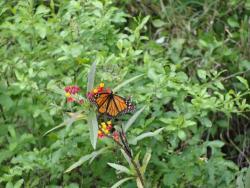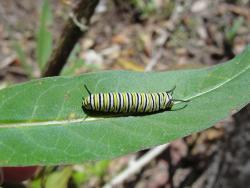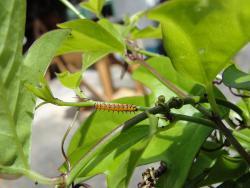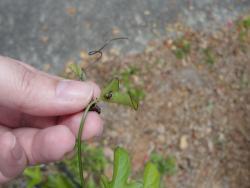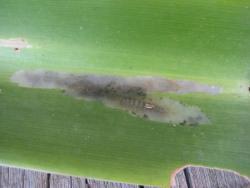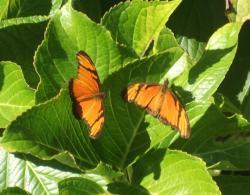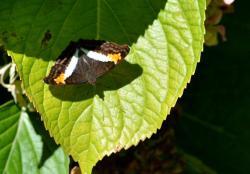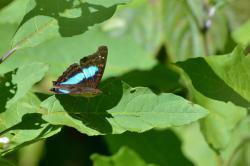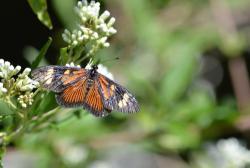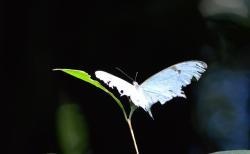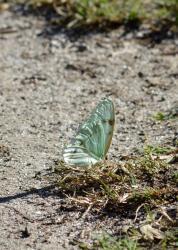The longer-lasting systemic pesticides could take most of the season to wear off...if it's present. It does help to cut them back a lot, but even then, the long-lasting systemic stuff is still in the roots, soil and the unpruned parts, could possibly go the new growth the first year. Considering the Monarchs and Queens are so scarce, I prefer to stick to unsprayed stuff from my own strictly no-pesticide plants or from no-spray growers that have been verified (I have complete faith in the native plant guy I know very well at that one nursery). Or milkweed in the wild, not in cities that might spray for mosquitos or such. This year isn't looking good for the wild milkweed in many parts of Texas. With the drought, we really need RAIN! I'm carrying water to the A. asperula and a couple of the A. texana out on my property to speed up its new growth...need to get another water hose out there!
Here's something I found about one of the systemic pesticides that is now banned in most of Europe, but commonly used in the U.S.:
How long do systemic insecticides such as imidacloprid (Merit) remain active in nursery grown plants? Asclepias curassavica (tropical milkweed)is frequently grown with imidacloprid to prevent aphids but it also kills monarch caterpillars utilizing the milkweed. How long will the milkweed be toxic for monarch caterpillars? Thanks.
ANSWER:
Imidacloprid is a chemical to avoid if at all possible. It is a synthetic analog of nicotine and is slow to degrade in the environment. According to the National Pesticide Telecommunications Network, it has a half-life in sandy loam soil of greater than one year. In bright light it degrades faster, with a half life of 39 days. But even the degradation products that form inside plants are highly toxic to insects, and their half-life is not reported.
Imidacloprid has been implicated in the mysterious colony collapse disorder of honeybees. For this reason, certain countries, e.g., France, has outlawed its usage for many purposes.
It seems safe to assume that milkweeds treated with imidacloprid may be quite toxic to monarch caterpillars for an extended period. Mr. Smarty Plants recommends the use of much less toxic sprays, such as Safer soap, which may be less effective on aphids but harmless to monarch caterpillars
